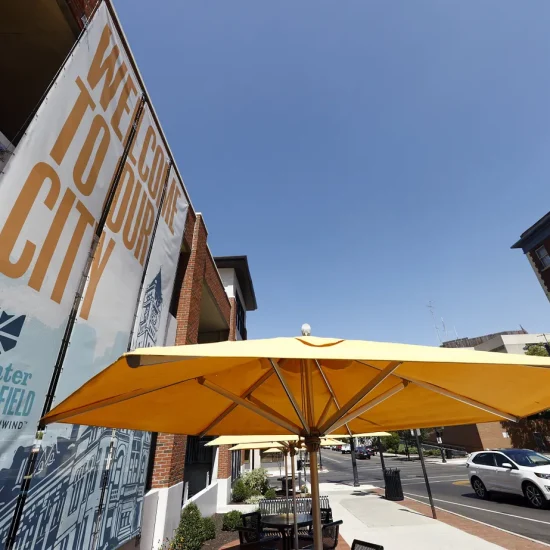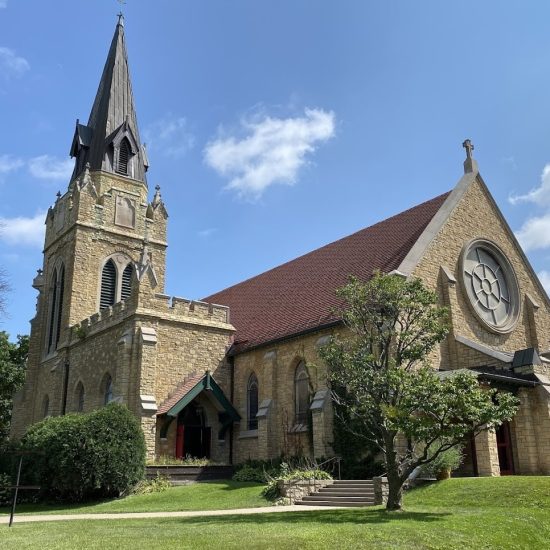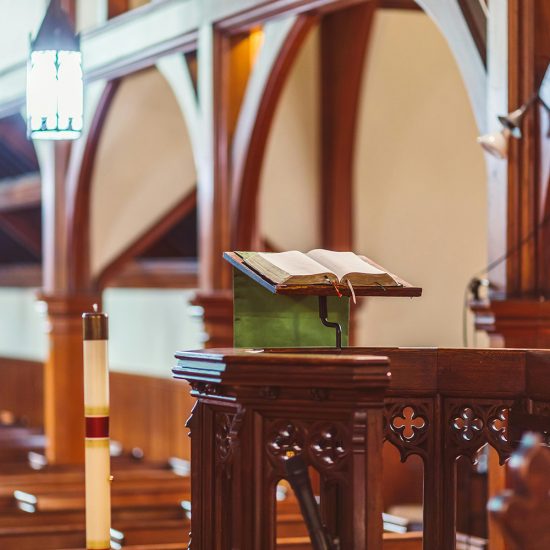Six months into what pundits have dubbed “the Great Recession,” some Texas Baptist churches and institutions report belt-tightening measures, but few are ready to push the panic button.

Some congregations report above-average receipts; others have cut budgets. Many simply are exercising caution, waiting to see what the next few months hold.
|
As of March 31, the Baptist General Convention of Texas treasurer’s office reported $10,138,869 in Cooperative Program receipts — the lowest first-quarter total posted in recent history.
Year-to-date receipts are at 88.9 percent of the $11,406,798 budget requirement, and 3.6 percent less than the $10,519,752 received during the same period last year.
In comparison, BGCT Cooperative Program receipts during the first quarter of 2007 totaled $11,291,584. Looking back, BGCT Cooperative Program receipts during the first quarter of 2006 totaled $11,223,155; in 2005, they totaled $10,699,978; and in 2004, they totaled $10,974,836.
BGCT investments at year-end 2008 were valued at $88.3 million, compared to $124.3 million on Dec. 31, 2007, BGCT Treasurer Jill Larsen reported.
The BGCT Executive Board staff is in the process of summarizing and analyzing budget revisions, she said.
“Everyone has re-evaluated their 2009 budget, striving for a 90 percent level. In some areas, this is difficult due to a higher proportion of wages and other fixed costs,” Larsen said. “I believe staff understands the economic environment and is working diligently to constrain their spending.”
While economists speak of a global recession, the economic downturn in Texas—and its impact on church offerings — appears more affected by local realities. Some congregations report above-average receipts; others have cut budgets. Many simply are exercising caution, waiting to see what the next few months hold.
One suburban church north of Dallas cut its budget 23 percent, laid off its minister of education and filled other staff positions — office manager, youth minister and children’s minister — with lay volunteers.
The congregation’s pastor — who asked that his church not be identified by name—and its associate pastor both voluntarily took 10 percent cuts in salary.
“We take in a large percentage of our income in year-end gifts that normally are tied to stocks, and we were down $180,000 in December,” the pastor explained.
The church currently operates on an “essentials-only spending plan” to protect remaining staff and to maintain ministry and missions support, he added.
In contrast, First Baptist Church of Lufkin ended 2008 with a $160,000 budget surplus and received about $800,000 total receipts above budget — including some estate gifts — in spite of having to cancel services one week due to Hurricane Ike, Pastor Andy Pittman noted.
“Our folks came through in November and December,” he said, noting $420,000 in undesignated receipts in December.
In Northeast Texas, U.S. Steel idled its pipe plant at Lone Star and decided to lay off most of its workers, affecting 14 or 15 families at nearby First Baptist Church in Daingerfield.
“It really hasn’t shown up yet clearly in our church offerings. They are holding steady,” Pastor Tim Wade said. “God’s people are continuing to be very faithful, and we haven’t had to curtail ministries or activities.”
However, Wade added, some of the steel plant employees received severance packages or unemployment compensation that will cease in a matter of months.
Noting that other major employers in the area — such as chicken processing plants around Mount Pleasant and Pittsburg — also are experiencing tough times, job prospects in the region are limited, he said.
“If things don’t improve, it could move from stressful to catastrophic,” Wade said. “A lot depends on what happens in the next three to six months. If it worsens, we need to be geared up and ready for whatever the Lord calls us to do.”
BGCT-affiliated institutions offered mixed news about giving trends in recent months, but most report the market value of endowment funds are about 30 percent lower at the end of the first quarter of 2009 than at the same time last year.
“We are doing our best to make it through this difficult economic situation without making layoffs,” Dallas Baptist University President Gary Cook said.
To date, DBU is operating within its means and has not had to cut any staff. But to help faculty and staff whose spouses have lost jobs, the university has set aside $80,000 for a loan fund. Zero-interest loans of up to $4,000 each will be made available at the discretion of a loan committee chaired by Cindy Pettit, director of the DBU intercessory prayer ministry.
At Houston Baptist University, the economic tsunami hit while the school still was recovering from a hurricane that seriously damaged its campus. But in a sense, adjustments the university made following Hurricane Ike prepared HBU for the economic downturn, according to President Robert Sloan.
“We deliberately held back tuition increases because of the hurricane,” Sloan said. “The vast majority of our students — about 90 percent — come from a five-county area around Houston, and we knew Houstonians would be hurting. So, we’ve taken a more cautious route.”
Recessions are an unfortunate “part of the journey of American life,” said Wayland Baptist University President Paul Armes. “While our endowment has decreased in book value from previous years, we have just concluded more than 15 years of significant resource growth. Additionally, much of Way-land’s endowment is in real property, which continues to grow in value and produce excellent endowment returns.”
In response to the economic downturn, Wayland is “budgeting very carefully and spending very conservatively,” intensifying its recruiting efforts and “working very hard to maintain…advancement connections and build new relationships,” he said.
The University of Mary Hardin-Baylor expects overall endowed scholarship awards to decrease about 25 percent from 2008-2009 levels, compared to a typical 8 percent growth, President-elect Randy O’Rear said.
“To maintain and strengthen our student tuition discount rate, UMHB is making up the difference by allocating more institutional budget funds to scholarships. In other words, any shortfalls that we expected the endowment to cover will still be available to our students, but in the form of UMHB scholarship funds from our operating budget,” O’Rear explained.
“Although our endowments are taking a hit on their investment performance, our overall endowment earnings represent a very small portion of our annual expenditures—just under 5 percent. If we had a larger reliance on our endowment, we would be faced with a much bigger current challenge.”
At East Texas Baptist University, trustees approved a 6.5 percent increase in the school’s operating budget for the next academic year, and the school has increased its student scholarship bud-get for next year.
“This budget included no raises but also avoided a reduction in force,” ETBU President Bob Riley said.
Howard Payne University increased institutional scholarships by 10.8 percent to help families of students entering next fall, and the school is continuing its scholarships for full-time students already enrolled, said Brad Johnson, vice president for enrollment and student services.
“While our endowment income has dropped dramatically, and income from the Baptist General Convention of Texas will be cut by $255,000, we are working hard to reduce costs and enhance revenue streams as we strive to run our educational program in a fiscally sound manner. We are planning prudently to weather the national economic storm,” Johnson said.
At Hardin-Simmons University, trustees approved a 4.4 percent budget increase for the 2009-2010 school year, including a 2 percent merit raise for faculty and staff.
“HSU projects as of May 31, 2009, the operating budget will have a small surplus,” said Shane Davidson, vice president for enrollment management. Endowments and similar funds decreased 20 percent — $24.3 million — from end of the first quarter in 2008 to the same time this year, he reported.
Baptist University of the Americas decided to hold the line on tuition and continue to offer housing at below market rates, President Rene Maciel said.
“We looked at raising tuition but realized immediately that we simply couldn’t — not and still be true to the unique call we feel God has mandated for Baptist University of the Americas,” Maciel said.
Baylor University publicly reports the total market value of its endowment only once a year, said John Barry, vice president for marketing and communication. The National Association of College & University Business Officers Endowment Study, released in January, reported Baylor’s 2008 endowment assets at $1.059 billion, a 4.1 increase over the previous year. Baylor ranked No. 70 out of the 791 schools tracked by the association.
While Baylor’s endowment has declined in value, the school’s diversified portfolio has minimized the potential impact of the market, Barry noted. For example, at the close of business Sept. 29, when the Dow Jones Industrials dropped 7 percent, the S&P 500 dropped 8.8 percent and the NASDAQ lost 9.1 percent, the decrease in Baylor’s endowment that day was 1.9 percent, university officials reported last fall.
“In terms of gifts received during the first quarter, we presently are tracking ahead of one year ago at the same time, and last year we ended slightly better than the average year,” Barry said, noting Baylor received $45 million in gifts in 2008.
Baylor has received a record number of applications for admission, and deposits received are roughly equal to last year, he added.
Texas Baptist ministries to children and families stressed the continued faithfulness of donors in tight economic times.
“Buckner International continues to enjoy strong giving in 2009, despite the lagging economy,” President Ken Hall said. “I think, in part, much of this is due to two factors—the integrity of the fiscal policies we have in place at Buckner and the dedication of donors who support us. They’ve done a good job realizing that, because of the poor national economy, their gifts are more critical now than ever to helping others in need.”
The economic downturn has had little impact on Baptist Child & Family Services at this point, President Kevin Dinnin reported.
“BCFS is doing extremely well. We have a small endowment and consequently have very little dependency on that revenue stream. Gift income remains strong, and we are ahead of budget year-to-date,” Dinnin said.
In contrast, South Texas Children’s Home Ministries President Todd Roberson reported his institution is “in the same position as everyone else regarding the market situation and the substantial decline in our endowment values.”
Roberson expressed thanks for God’s provision in the past through his people, and he voiced confidence in that continued provision.
“Although we have noticed some decrease in the number of people giving, we are very grateful for the faithfulness of those still able to give generously,” he said. “Over and over, God has demonstrated to us that STCHM’s mission to reach hurting children and families is really his ministry, and he continues to meet our needs so we can continue to be his hands and feet to the children and families we serve.”
Children at Heart Ministries President Jerry Bradley likewise offered thanks for God’s blessings, saying his agency “continues to be encouraged and blessed by God’s faithfulness as reflected in the generosity of our donors and our staff’s commitment to service.”
“While total giving was down in the last quarter of 2008 and first quarter of 2009, giving for operational expenses was about the same as it was a year ago. People have less money to give, but ministries to children and families will always have a place in personal giving,” Bradley said. “It is our goal to not reduce the quality or quantity of ministries to children and families that are now or will be in our care. In recognition of the current economic challenges, we are working … to examine all ministry expenses to identify steps that we can take to make sure we continue to live within our means.”
Some institutional leaders noted first-quarter reports offer only an early-warning signal. Later in the year, they said, their institutions will have a clearer picture of the economic downturn’s impact.
“Historically, the effect of an economic downturn is felt by nonprofits several months after it begins to affect the for-profit world,” said Hall, Buckner’s president. “I believe this summer will be a critical time for all nonprofit ministries, including our Texas Baptist institutions, as budgets are planned and priorities re-evaluated based on the economy and giving.”
Ken Camp is managing editor of Texas Baptist Standard.






